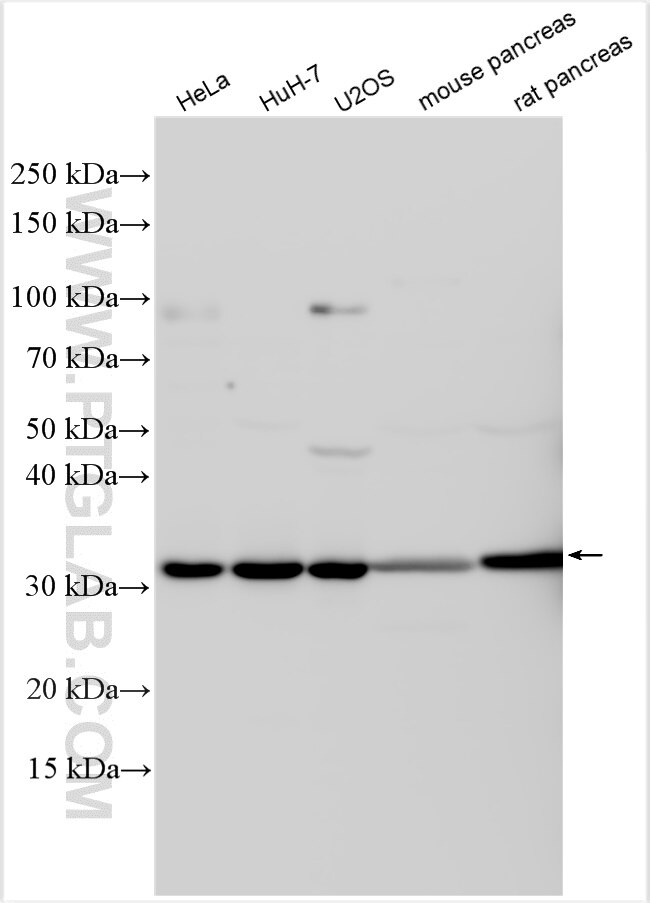Tested Applications
| Positive WB detected in | HeLa cells, HuH-7 cells, U2OS cells, mouse pancreas tissue, rat pancreas tissue |
Recommended dilution
| Application | Dilution |
|---|---|
| Western Blot (WB) | WB : 1:1000-1:4000 |
| It is recommended that this reagent should be titrated in each testing system to obtain optimal results. | |
| Sample-dependent, Check data in validation data gallery. | |
Product Information
31161-1-AP targets C18orf24 in WB, ELISA applications and shows reactivity with Human, mouse, rat samples.
| Tested Reactivity | Human, mouse, rat |
| Host / Isotype | Rabbit / IgG |
| Class | Polyclonal |
| Type | Antibody |
| Immunogen | C18orf24 fusion protein Ag34772 Predict reactive species |
| Full Name | chromosome 18 open reading frame 24 |
| Observed Molecular Weight | 32 kDa |
| GenBank Accession Number | BC015706 |
| Gene Symbol | C18orf24 |
| Gene ID (NCBI) | 220134 |
| RRID | AB_3669875 |
| Conjugate | Unconjugated |
| Form | Liquid |
| Purification Method | Antigen affinity Purification |
| UNIPROT ID | Q96BD8 |
| Storage Buffer | PBS with 0.02% sodium azide and 50% glycerol, pH 7.3. |
| Storage Conditions | Store at -20°C. Stable for one year after shipment. Aliquoting is unnecessary for -20oC storage. 20ul sizes contain 0.1% BSA. |
Background Information
C18orf24(Spindle and kinetochore-associated protein 1, SKA1) is involved in chromosome congression and mitosis. It is upregulated and oncogenic in several human cancers (PMID: 31827398). In the human genome, SKA1, SKA2, and SKA3 constitute the SKA complex; this is necessary to maintain spindle microtubule attachment to kinetochores during mitosis (PMID: 36397719).
Protocols
| Product Specific Protocols | |
|---|---|
| WB protocol for C18orf24 antibody 31161-1-AP | Download protocol |
| Standard Protocols | |
|---|---|
| Click here to view our Standard Protocols |



